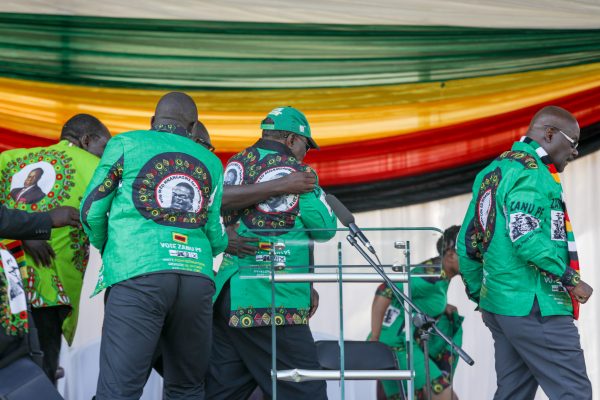
The despicable grenade attack at Bulawayo’s White City Stadium on June 23 that claimed two security aides and left at least 47 others injured, including Vice-President Kembo Mohadi, was the new administration’s biggest test yet on its resolve to change Zimbabwe’s political trajectory.
TheStandard Comment
President Emmerson Mnangagwa, who was said to be the target of the attack, reacted like a true national leader when he dismissed a mischievous question by ZBC’s Reuben Barwe on whether the people of Bulawayo could have been behind the attack.
The question was asked a few hours after the attack and at a time when security agencies were scrambling for answers following the unprecedented incident.
It would have been dangerous to start pointing fingers before a proper investigation and Barwe went against journalism principles by posing that question.
Police only addressed journalists the following day, but they still did not have a clue about who was behind the attack at the Zanu PF rally inside the packed stadium.
Last Thursday, Mnangagwa revealed for the first time during a trip to Tanzania that the explosion was caused by a grenade.
The president had earlier told the BBC in an interview that he suspected that members of a former Zanu PF faction linked to former first lady Grace Mugabe, known as G40, were behind the attack.
- Chamisa under fire over US$120K donation
- Mavhunga puts DeMbare into Chibuku quarterfinals
- Pension funds bet on Cabora Bassa oilfields
- Councils defy govt fire tender directive
Keep Reading
Mnangagwa said his suspicions were based on a hunch and he had no evidence that G40 was involved. Therein lies the problem!
The president must not be throwing accusations at people, even his sworn enemies, based on his feelings.
Zimbabweans are keenly waiting for security agencies to explain what happened at White City Stadium so that they get on with their lives.
Citizens need constant updates about the progress, if any, that has been made in tracking down the alleged assassins and establishing their motives.
Such information is of paramount importance for a country that will be holding a very crucial election in 30 days’ time.
That the attack took place during an election rally makes it of major concern for the candidates and the electorate in general because of the security implications for future rallies and for the voting day itself.
So far, the government has done poorly in reassuring citizens that the security services have everything under control.
There has also been a lot of reckless statements made by some Zanu PF and government officials that have been apportioning blame for the attack on their rivals without providing any evidence.
The situation is still very volatile and reckless statements can spark unintended consequences.
Mnangagwa needs to lead by example and steer clear of making pronouncements that have the potential of inciting his own followers to render mob justice against his perceived enemies.
Security agencies must be left to do their work without due influence, whether through public statements by senior government and Zanu PF officials or otherwise.
The same goes for the judiciary, which must play its role in a professional manner, so that those behind the barbaric attack get the punishment they deserve.











